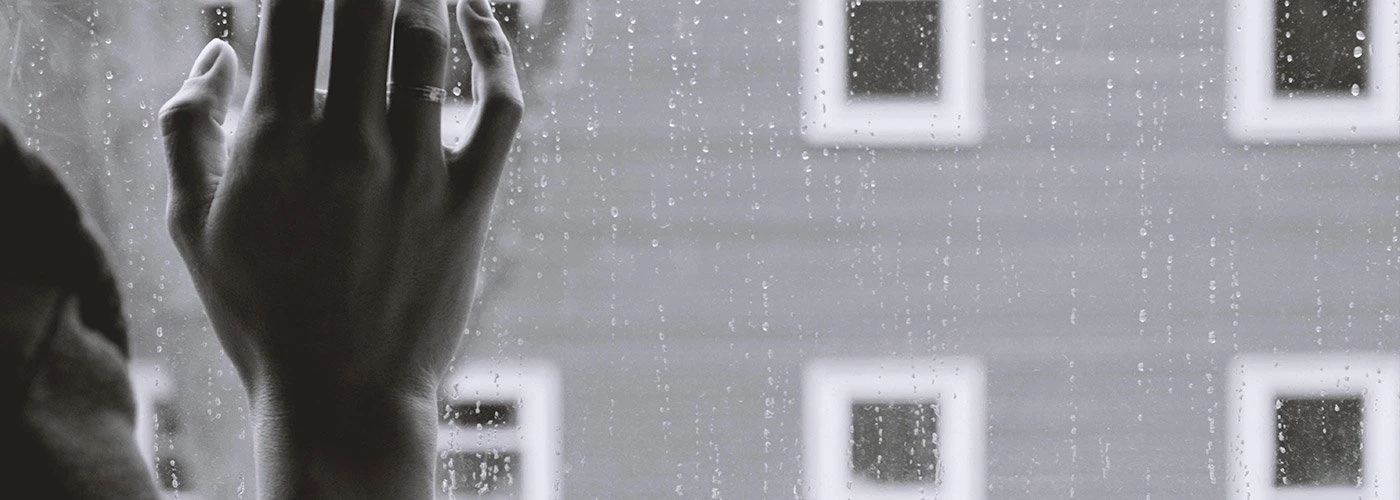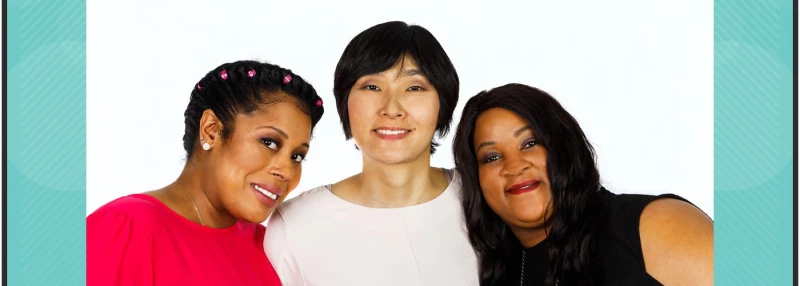A First Unbearable Moment
I sat in an oncologist’s office - she wasn’t yet “my” oncologist because I didn’t know what direction was up, let alone how to choose my medical team - and I asked her if I would ever be able to have children.
She knew my breast cancer diagnosis was strongly hormone positive. She also knew I’d had a baby two years prior. She shook her head. No, she said, refusing to break my gaze, showing me the respect and humanity I so desperately needed at that moment. “I don’t recommend that you ever carry another child.”
I began to sob - great, heaving sobs, from a space erupting deep inside of me, a space that I didn’t know existed. It was as if something inside me had torn in half.
As I composed myself and wrapped my brain around this information, the doctor continued. She wanted a PET scan, preferably within twenty-four hours. The breast MRI images I had handed over to her office had shown lesions on the bones of my sternum - possibly indicative of metastatic disease. Suddenly, the worst moment of my life changed - what I thought was unbearably difficult news paled in comparison to the news I was receiving. We would know more after the scan, she said.
Other People’s Worst Selves
The next morning, I woke up and stonily drove myself an hour to my cancer center, where I sat, unflinching, as the technician placed an IV line in my arm and asked if I had any children. One, I whispered to her, but I can’t have any more.
"I felt so alone in that basement nuclear medicine room, that space below the ground, so devoid of hope, where my fate rested and my hope abated."
Disregarding what I had just told her, she barrelled on, telling me not to give up hope. That I could still have more children if I wanted them. I was too tired to argue with her, to tell her that, no, it didn’t work like that. My wounds were still so raw, so fresh, that I could do nothing but curl into myself and protect them.
I felt so alone in that basement nuclear medicine room, that space below the ground, so devoid of hope, where my fate rested and my hope abated. I sat, waiting for the injection of the nuclear isotope into my body, the first of a multitude of poisons I would come to receive. Nothing in my life would be harmless any more, treatments would be weighed against toxicities previously unheard of. I lay prone in the scanner and didn’t even have to take off my shoes. I raised my arms over my head and tried not to think about how badly I had to pee - a small discomfort compounded on top of so many others.
The Real Worst Moment
That evening, my husband and I sat on the couch together, mindlessly watching television. How does it happen that the hammer always drops at the time you least expect it? My phone rang. It was the oncologist. There were lesions in my sternum, but also my spine, my hips, my ribs, my clavicle, so many bone lesions.
It was metastatic disease - stage IV, incurable breast cancer. We clung to each other and sobbed. Everything up until that point swirled around us like a miasma of our former selves, and then - poof - evaporated. It was the worst moment of my life.
Until we called my parents. We cut to the chase. It was hard to hide news like that when we could barely talk enough to choke out the words. Metastatic. Bone lesions. We don’t know. My mother let out a noise that chilled me to my cancerous bones. A guttural noise, unnatural, the kind of noise a mother makes when she learns that she is going to have to bury her child.
View Resources
And then things began to look up. I held those moments, the worst moments of my life, close, I carried them with me. I began to form words for that new life I was living. Words like “I’m doing ok” and “well, it could be worse.” Words that didn’t include “survivor” or “my battle”. Words that fell short of meaning, but that would have to do.
And then, it happened. The worst moment of my life. A year later - a year full of appointments, menopause, side effects, pills, hot flashes - but also stable scans, cancer regression, of life - my disease progressed.
I couldn’t talk about it without bursting into tears. I couldn’t fully comprehend what that meant for me. I didn’t understand. I would lie in bed at night, awake, and blink away tears until they came too furiously to hold back, and I would sob at the life I wasn’t given.
I started a clinical trial for metastatic breast cancer, a new space for hope. And two months later - again - the worst moment of my life. I had experienced some unusual headaches, which prompted a brain MRI. It revealed two small lesions in my parietal lobe. They scanned my brain again - mapping, they called it - in preparation for my stereotactic brain radiation. And a few days later, I lay on the table, my face covered in a hard mesh shell that clamped me down, and my arms and legs were strapped in place so that I was completely immobilized, so that I didn’t move suddenly and cause the lasers penetrating my brain to damage any additional tissue.
And then, when it was all over, I looked in the mirror, and saw the reflection of someone back at me. I wondered who that person was, and what might become of her.
What the Future Holds
That day was not the worst day of my life. Neither were the days to come - spectacularly terrible days, to be sure - but not the worst. Not even the day when I progressed again, off of the clinical trial, or the day when my tumor markers doubled, and I had to go for another last-minute scan. Or even the day when I started IV chemotherapy, or the day when, weak and nauseous, I couldn’t get off the floor while I kept throwing up. Or even the morning when my husband and I shaved my head, to stave off the deluge of hair loss.
I often wonder when the next worst day will be - will it be the time when this treatment stops working? Will I develop more debilitating side effects? Will my quality of life diminish, or will I eventually run out of MBC treatment options?
I could not know what was to come for that woman sitting in the oncologist’s office nearly two years ago. Or for that woman staring into the mirror after her brain had been radiated.
I don’t know what the future holds. I can’t say that things will get better - or whether they will get worse, or - most likely - if it holds both in turn.
 Emily Garnett is a former elder law and special needs attorney whose practice focused on adult guardianships, capacity issues, care management and public benefits. Today, she is the face of Beyond the Pink Ribbon, an advocacy and awareness platform where she documents her experience living with metastatic breast cancer. Emily also serves as the host of The Intersection of Cancer & Life podcast.
Emily Garnett is a former elder law and special needs attorney whose practice focused on adult guardianships, capacity issues, care management and public benefits. Today, she is the face of Beyond the Pink Ribbon, an advocacy and awareness platform where she documents her experience living with metastatic breast cancer. Emily also serves as the host of The Intersection of Cancer & Life podcast.




